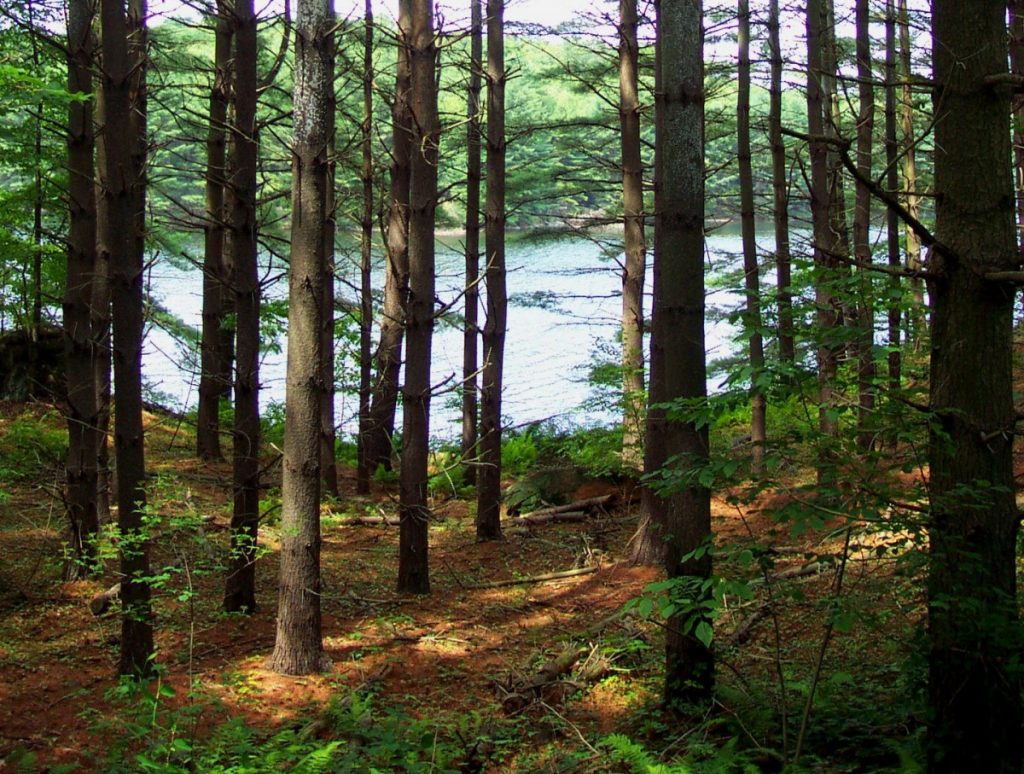
A look at the role of water companies and state law in protecting open space in Connecticut, from Kat Fiedler, Save the Sound’s Peter B. Cooper Legal Fellow:
When you think about land conservation, you probably think of land trusts, state forests, or municipal parks. But in Connecticut, there is another important conservation partner: drinking water companies. Collectively, drinking water companies are the largest open space landholder in the state, limiting development and other harmful activities on land surrounding drinking water supplies in order to reduce costs of treating that water. A win-win.
But sometimes a water company no longer needs that land to protect its supply. What happens then? Does that land simply get sold to the highest bidder?
Thankfully, no. CFE/Save the Sound helped draft and pass laws in the early 2000s to allow conservation buyers the first chance to acquire water company land and establish financial incentives for water companies to sell land to conservation buyers.
First, the process. Before developers are even notified of a potential sale, water companies are required to notify the state, towns, other water companies, and land trusts first. These parties then have time to consider whether they’d like to buy the land before a developer can jump into the fray. If multiple buyers are interested, there is a list ranking who gets to make a deal, with parties that would conserve the property ranked highest.
Second, the incentives. Often, conservation buyers do not have the resources to buy land at market value, but would rely on a bargain sale or donation. But why would a water company looking at its bottom-line forego profits to facilitate conservation? Again, state law helps by providing financial incentives to ensure some or all of the land is conserved by the next owner. Water companies can receive flexible tax credits for donating or selling at a bargain land to be permanently conserved as open space. Another win-win.

State law also encourages water companies to conserve a significant portion of a property through a tiered system—the more land conserved, the more of the profit that can be allocated to its shareholders. This can often tip the scale towards the conservation of the vast majority or all of a property. And another win-win.
These laws work. They have helped protect thousands of acres in the decades since the laws were passed. In a highly-developed state like Connecticut, where open space land is at a premium, these laws have helped preserve critical open space parcels throughout the state, protecting hiking and birding opportunities, habitat connectivity for wildlife, and forests’ ability to store carbon.
CFE/Save the Sound’s work was not done after the passage of these laws. We watch for water company land sales and make sure that these procedures and incentives are known and applied. Most recently, we supported Greenwich Land Trust and the Town of Greenwich in acquiring over 70 acres of open space land from Aquarion Water Company that would have been incredibly vulnerable to development. The town and the land trust were able to leverage tax credits and the shareholder allocation during the early negotiation window provided by state law. This deal is now pending approval by the Public Utilities Regulatory Authority.
We are also watching actions by the Metropolitan District Commission that could reclassify of over 6,000 acres of water company land in Northwest Connecticut. If this land is reclassified to Class III land—a less protective status than its current Class I and Class II classification—it is subject to sale for any use. That’s where the state laws mentioned above would come into play. We’re working to make sure this land remains Class I and II, and we’ll work to make sure the procedures and incentives are fully taken advantage of if a sale does eventually occur.
We also look for ways to make these state laws stronger. For example, during the acquisition of Connecticut Water Company by out-of-state San Jose Water, we added a supplemental process for the acquisition of specific lands that would give land trust a true opportunity to fully evaluate their interest and ability before a developer can start negotiating. Preserving open space, whether expansive thousand-acre tracts or small parcels that give wildlife safe pathways through our more developed areas, is of utmost importance. We’ll keep working to support those efforts before the legislature and agencies, around the negotiation table, as a watchdog, and as a partner to dedicated local organizations.
